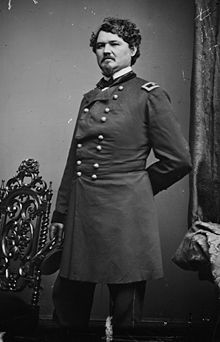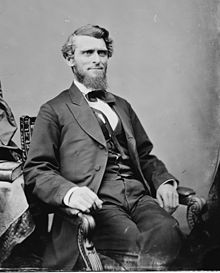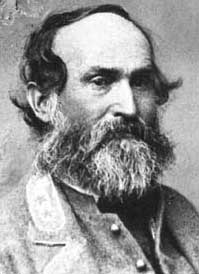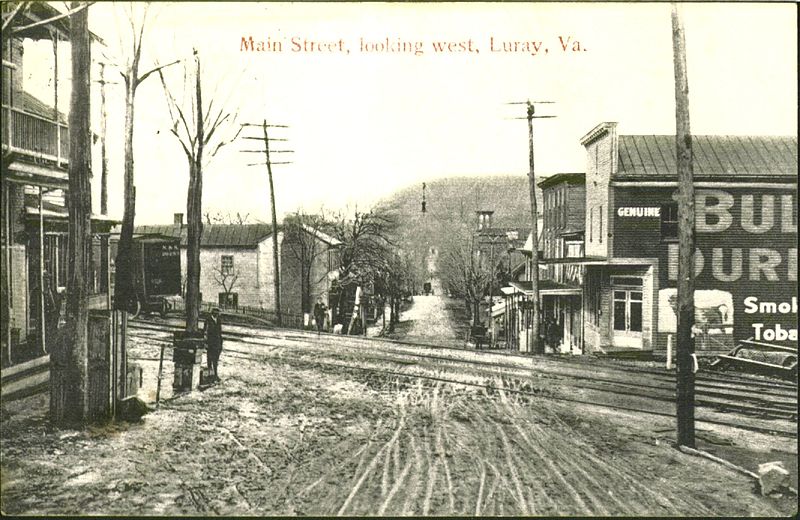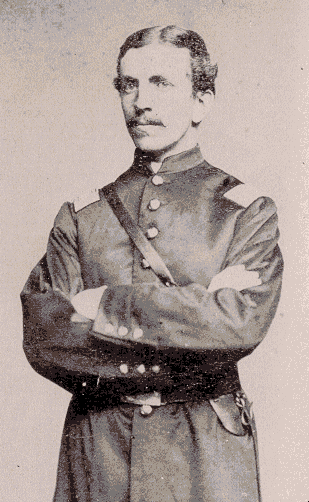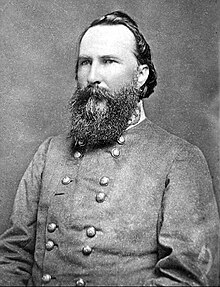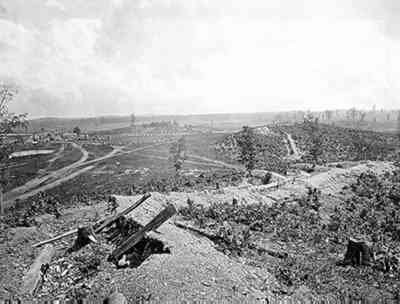 |
| General P. G. T. Beauregard |
CHARLESTON, S. C.,
December 11, 1863.
Hon. PIERRE SOULE,
Richmond, Va.:
DEAR SIR: I send you herewith the plan of operations for the present
emergency you had asked of me before you left here. The views I have
expressed may appear bold na impracticable to many, but our condition is
so critical, in my opinion, that half-way measures may retard our ruing
but cannot save us. The past,however, gives me no reason to believe
that my views will be adopted by the War Department.
This is the sixth plan of campaign that I have had the honor to offer,
directly or indirectly, to the Government, to wit, two from Manassas to the President in June and July, 1861, one from Bladon to General
Bragg in July, 1862, one from Charleston to General Johnston, in May,
1863,one from Charleston to General Bragg, in October, 1863, and the one
accompanying this letter to yourself. Of all these plans only the
second one from Manassas was partially adopted, and after its success,
strange as it may appear, its paternity was disputed! Indeed, at the
time I attached but little importance to it, my sole object being to
defeat the enemy and insure the success of our cause. I looked in pity
on those who could not understand such motives of action, and left sick
at heart at their egotism and blindness. God grant that they may open
their eyes before we are all engulfed in the same abyss!
You are at liberty to show the accompanying plan of campaign to whomever you think may aid you in having it adopted.
I fear that the friends of the administration may not be pleased with
certain passages in it, but I endeavored to make it as "gentle" as I
could. It was impossible to do justice to the subject and say less. I
think it can safely be shown to Messrs. Orr, Wigfall, Miles, Conrad, and
Villere.
With many kind regards to all inquiring friends, I remain, yours sincerely,
G. T. BEAUREGARD.
[Inclosure.]
HDQRS. DEPARTMENT OF S. C., GA., AND FLA., Charleston, S. C.,
December 8, 1863.
Hon. PIERRE SOULE,
Richmond, Va.:
MY DEAR SIR: In compliance with your request made on the eve of your
departure for Richmond, I have prepared for you a sketch of certain
operations by which we may yet retrieve our late losses and possibly
baffle the immense resources of men and available material of our enemy.
First. The system hitherto followed of keeping in the field separate
armies acting without concert on distant and divergent lines of
operation, and thus enabling our adversary to concentrate at convenience
his masses against our fractions, must be discontinued, as radically
contrary to the principles of the art of war, and attended with
inevitable results as our disasters in Mississippi, Tennessee, and
Northern Georgia.
Second. We must arrange for a sudden and rapid concentration upon some
selected, decisive, strategic point of the theater of war of enough
troops to crush the forces of the enemy embodied in that quarter. This
must necessarily be done at the expense or hazard, for the time, of
other points less important or offering less advantages for striking the
enemy. A blow thus struck will necessarily disorganize his combinations
and give us the choice of the field of operations.
I am sensibly aware of our limited means, our want of men, the material
and appliances of war, and of transportation, and hence the difficulties
which will embarrass us in the execution of this plan of concentration,
but I see no way to success except through and by it. A different
course may, indeed, protract the contest, which will become day by day
more unequal. We may fight-stoutly, as hitherto-many more bloody and
indecisive battles, but will never win a signal, conclusive victory until we can manage to throw a heavy and
overwhelming mass of our forces upon the fractions of the enemy, and at
the same time successfully strike at his communications without exposing
our own. I believe this may yet be done. Not knowing, however, our
present available forces and their locations, I am unable to make a
definite or detailed plan of operations, but I believe I am warranted is
assuming that we have under arms 210,000 effective men, distributed as
follows:
In the Trans-Mississippi Department,say.................. 40,000
Department of Alabama and Mississippi, say............... 15,000
Under Hardee,including Longstreet,say.................... 60,000
Department of South Carolina, Georgia,and Florida,say..... 28,000
Department of North Carolina, say........................ 7,000
Department of Virginia,say............................... 60,000
______
Total.................................................... 210,000
Looking at a map of the Confederate States, it will be seen that the
most injurious blow which the enemy could strike at present would be to
take possession of Atlanta, thus isolating still more completely the
trans-Mississippi States, and detaching, in a great measure, the States
of Mississippi and Alabama from the eastern portion of the Confederacy.
It would also be a deplorable injury to the energeting, populous State
of Georgia, and cripple the great resources of that people. We should,
therefore, regard Atlanta as the actual objective point of the large
force which the enemy has concentrated about Chattanooga, and the one
which we must at all cost prevent him from obtaining. In this state of
affairs, throwing aside all other considerations, subordinating all
other operations to this one vital campaign, at a concerted moment we
must withdraw from other points a portion of their forces - all, indeed,
not absolutely essential for keeping up a show of defense or safety
against a coup de main, and concentrate in this way every soldier
possible for operations against General Grant. Such strategic points as
Richmond, Weldon, Wilmington, Charleston, Savannah, Mobile, and Meridian
or Jackson, Miss., at the same time should be fortified, garrisoned,
and provisioned, according to their present relative value to the
Confederate States, sufficiently to prolong their defense if attacked or
besieged until troops for their relief could be detached, as required,
from the army in Northwestern Georgia.
I will now state, approximately, what troops may, in my belief, be
withdrawn from the following quarters and added to the army at or about
Dalton, namely:
From Alabama and Mississippi............................. 10,000
From South Carolina, Georgia, and Florida................. 8,000
From North Carolina...................................... 2,000
From Virginia............................................ 20,000
------
Total.................................................... 40,000
These 40,000 men, added with celerity to the force now under Hardee, and
including that under Longstreet and other detachments, would make an
army of 100,000 men. Let this army take the offensive at once, and,
properly handled, it should crush any force that Grant could assemble in
time an oppose, scattered as he evidently is, and unprepared as he
would be for such an event.
To insure the success of a plan of operations the press must preserve complete silence touching all military movements. Depots of subsistence, munitions of war, ambulances,horses, wagons,
&c., should be established at certain points not too far from
Atlanta for rapid concentration at the proper time. Meantime, whatsoever
troops that could safely be withdrawn from the departments already
indicated, should be quickly, quietly concentrated at suitable central
points, thence to be thrown with all possible dispatch to Dalton with
all the means of transportation available of all sorts. At the same time
the officer appointed to command this large army should make all his
preparation for such a trust and the sudden accumulation of troops of
all arms, so that he may able to mold it into a homogeneous mass as
early as practicable, and to inaugurate offensive operations without
loss of one moment of time that may be obviated. And further, he must be
invested with an unrestricted, unembarrassed selection of staff
officers and thoroughly emancipated from the least subordination to the
views and control of the heads of bureaus at Richmond, a reproduction in
this war of that fatal Austrian system, with which no eminently
successful commander ever had to contend - a pernicious plan of
administration which will clog and hamper the highest military genius,
whether of a Napoleon or a Caesar.I believe the success of the plan of campaign thus sketched and the utter defeat of the enemy would be almost certain.The question would next be, whether to pursue the routed enemy with
vigor to the banks of the Ohio and Mississippi, or to return to the
several sources whence the army was gathered their respective
detachments or quotas for the campaign. This should be left, however, to
be determined by the nature of the enemy's operations at the time.I must finally remark that were it possible to concentrate with
sufficient expedition, at or about Knoxville, such an army as I have
indicated, that would be the better point whence to take the offensive
into Middle Tennessee than Dalton, that is, according to the principles
of the art, would promise more decisive results, for it is evident we
should thus threaten the enemy's communications without exposing our own
(Principe II, Art of War). "Le secret de la guerre est dans le secret
de communications" (Napoleon).By a movement from Knoxville we should be doing what is taught in
connection with the third maxim (Art of War), to wit: That part of the
base of operations is the most advantageous to break out from into the
theater of war which conducts the most directly on the enemy's flanks or
rear. There may be, however, such practical difficulties in the way of
execution of such a movement on that line as may not make it advisable
to adopt it."The whole science of war," it has been well said, "may be briefly
defined as the art of placing in the right position at the right time a
mass of troops greater than your enemy can there oppose to you."These conditions, I sincerely believe, may all be filled by very much
such a plan as the one which I have hurriedly placed before you. Of
course my views must be subject to such modifications as my want of
precise information relative to the number and location of our troops
may render necessary.The hour is critical and grave.The enemy increaseth every day;We at the height, are ready to decline.
I am filled with intense anxiety lest golden opportunities shall be lost
- lost forever. In no theater of human action is it so true as in war -
There is a tide in the affairs of men,
Which, taken at the flood, leads on to fortune;
Omitted, all the voyage of their life
Is bound in shallows and in miseries.
* * * *
And we must take the current when it serves,
Or lose our ventures.
It is concentration and immediate mobility that are indispensable to save us.
Yours,sincerely,
G. T. BEAUREGARD.
Official Records, Series I., Vol. 31, Part 3, Pages 812-816.
At the time of this epistle, Lee was in Richmond advocating for Beauregard to be placed in command (as opposed to Lee himself assuming the duty). But Jefferson Davis had a clear, and unfavorable, view of Beauregard. It was in no small part due to his vanity and far reaching strategic imaginings, fully on display here. A point Beauregard makes, and others would make after the war, was that Richmond was not as strategically important as Atlanta and to win independence the Confederates needed to have recognized the fact. But it must be understood that to cede Virginia to the Union would also mean to lose a large part of it's armies, as Virginians would be more likely to go home than to continue the struggle after their homeland had been abandoned to the Union army. Davis was no fan of Joe Johnston, either, but messages such as this were of the stuff which stunted any ambition Beauregard had for enacting his plans in the field with actual troops. Pierre Soule was a diplomat from Louisiana who had been captured and imprisoned at the start of the war, but escaped South. Before the war he had schemed for the US to annex Cuba.

